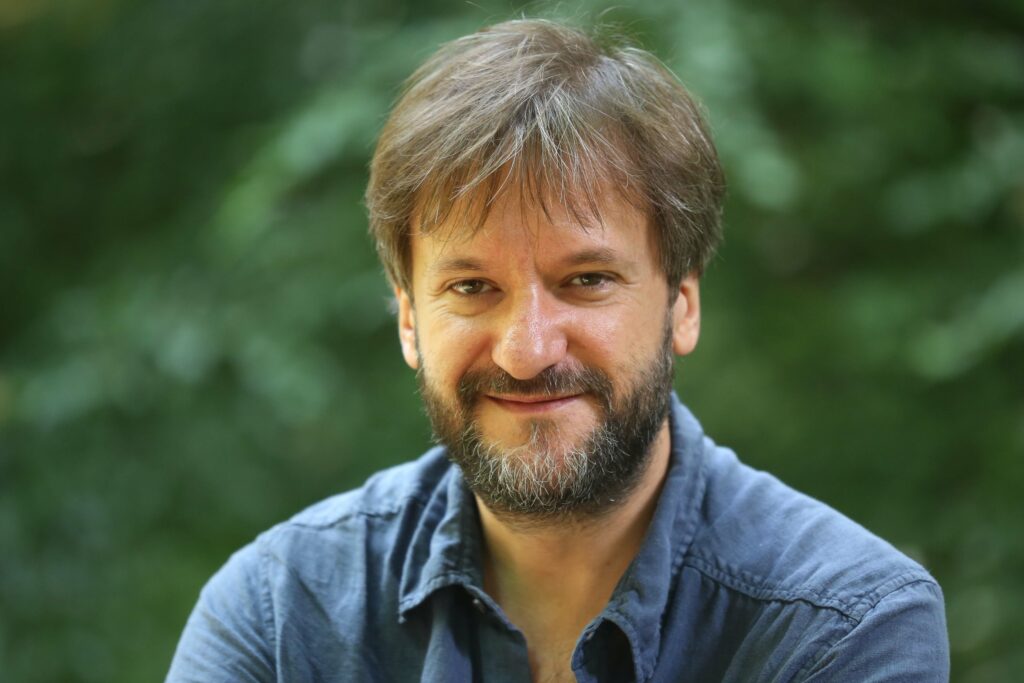The brainers

Yves Barral – Biologist
Yves Barral specializes in asymmetric cell division. These studies aim to understand how the mitotic spindle and cell separation machinery are coordinated to form two daughter cells that are different from each other, and thus generate cellular and biological diversity. At the Swiss Federal Institute of Technology in Zurich, he is Professor, Research Director, Director of Studies in Biology, and Vice-Director of the Institute of Biology. He heads a laboratory of some twenty people. Over the last ten years, he has been particularly interested in the mechanisms of aging, starting with the aging of the cell. His work indicates that the capacity of living systems to accumulate memory of the conditions they have encountered, and to use this information to adapt to their environment and anticipate its changes, is intrinsically linked to their aging. He explores the possibility of using these observations to establish links between biology and mathematics, and particularly with axiomatic systems. On a more philosophical level, his work has led him to explore the differences between notions of time in physics and biology. Indeed, these differences appear to form the basis of all cognitive p
This brainer takes part in round-table discussions, offers improvisation sessions and the following solo talks:
Genome and memory
The analysis of living systems, from bacteria to man, reveals the sophistication of adaptation mechanisms and strategies developed over the course of evolution. Their inscription in the genetic heritage of individuals, also known as the genome, gives us an initial insight into the history of the species and the conditions to which it has had to adapt, of which the genome is a kind of memory. As a result, we often react to our environment in the way that proved most advantageous to our ancestors, and not necessarily in the way most appropriate to the contemporary situation. This is probably why biological systems have evolved mechanisms of perception, memorization and learning to adapt to new situations. I would draw on our discoveries in very simple organisms to suggest that this is a very general process in the living world.
Anthropomorphism versus anthropocentrism, a plea for a new symbiosis with nature
The appearance of agriculture in human history is associated with the development of the idea that a God or several Gods created the world for us and gave us rights over nature. This eminently anthropocentric approach was imposed in opposition to the anthropomorphism of animistic beliefs. The consequences of anthropocentrism, as seen in the unprecedented scale of species extinctions and rapid climate change, must lead us to rethink our relationship with nature. One possible way forward lies in developments in biology and what they reveal about the similarities we share with other species, but also what makes our species unique. One of these is our ability to mentally project ourselves onto other species and associate them with our own history - anthropomorphism. What if biology could reconcile us with a rational version of this attitude, and use it to found a new symbiosis with nature?